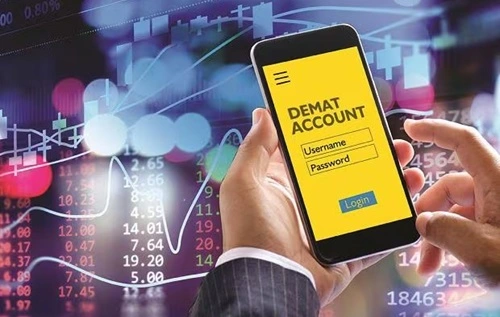The equity counterpart of a bank account is called a demat account. Your shares are held in custody by the demat account, much like your cash is in a bank account. You can access the account anytime you need to transfer or transact said securities. Let us discuss a few things that are essential before opening a demat account.
Types of Demat Accounts

There are several kinds of demat accounts, including the following:
- Regular Demat Accounts- These are accounts offered by depositories like the CDSL and NSDL to investors who are Indian residents. There are no limits on the number or value of securities that can be held in these accounts.
- BSDA (Basic Service Demat Account)- This is a basic version of regular demat accounts and is for those residing in India. They are more convenient for those who do not frequently invest or trade, and if the value of the holdings does not surpass INR 2 lakh. If this value is INR 50,000 or less, then AMC (annual maintenance charges) are often not levied by depositories for these accounts. In other cases, they are way lower than regular demat accounts.
Some other types include repatriable and non-repatriable demat accounts for NRI investors.
Depository and Its Role
Opening and managing demat accounts has become a smooth procedure owing to the availability of numerous smartphone applications. Opening demat accounts via DPs (depository participants) is easy, just like opening bank accounts. Yet DPs cannot offer demat accounts if they are not registered with depositories, which are entities responsible for securely holding investors’ securities.
Depositories are entities holding securities like shares, bonds, debentures, mutual fund units, and government securities. These are held in electronic form at the requests of investors via registered depository participants (DPs). Once investors purchase stocks, they are transferred electronically to their demat accounts, which are offered by DPs. The depository is a central repository of securities, holding these stocks securely on the investor’s behalf. If stocks have to be sold by investors, the DPs are instructed to initiate sales transactions. The DPs will reach out to depositories to transfer stocks to the buyer’s demat account from the investor’s demat account. Presently, there are two depositories registered with SEBI, namely the National Securities Depository Limited (NSDL) and the CDSL (Central Depository Services Limited).
Key Aspects of Demat Accounts
Here are some major aspects relating to demat accounts that you should know more about.
- It was once imperative to send the DIS (debit instruction slip) promptly to brokers while selling shares. However, nowadays, brokers have tech-powered interactive systems that automatically process your sell orders, thereby doing away with the requirement for physical slips.
- The depository participant’s reputation is crucial as it will influence how your money is managed.
- Generally, the demat account is credited on T+1 days after buying shares, and it is deducted the next day when you sell shares.
- The depository participant needs to be able to provide you with a helpline number, email address, physical address, and round-the-clock customer assistance.
- You have probably noticed DPs offering free account openings rather frequently. Recall that this is but one expense associated with keeping your DP account active.
- You receive an annual bill for the annual maintenance fee (AMC), which is typically based on the value of the shares in custody.
- To safeguard their funds, the depository participant should have a robust security mechanism in place.
- A DP ought to provide a detailed summary of all the fees that are relevant to your transactions and not impose any unexpected or hidden costs.
- One cannot evaluate a DP solely based on standard transactions. It must also be assessed in light of the additional services it offers.
- Verifying if the depository participant is the subject of any ongoing complaints is crucial. Avoid, if there is any.
- A few documents must be submitted in order to start an online Demat account, just like with any other bank account. A PAN Card is one of the required documents.
- You should be able to access your holdings, transaction statements, portfolio, and other account information using your database’s web portal.
- Go to the DP website of your choosing, look for it, and click on the “Open a Demat and Trading Account” option. These two services are usually provided as a single feature.
- The depository participant must offer a wide range of products and services that meet your objectives and desires for investments.
- An online paperless account opening procedure should be available. Additionally, it must include a way to register for email and SMS notifications.
- It should be possible to register for online services and use a mobile app to manage your account with the depository participant.
Examining the aforementioned details is crucial prior to selecting a depository participant. It will assist you in determining whether or not the DP meets your needs. To maximise your investment returns, it is your duty as an investor to select a dependable and trustworthy depository participant.

Meet Suhas Harshe, a financial advisor committed to assisting people and businesses in confidently understanding and managing the complexities of the financial world. Suhas has shared his knowledge on various topics like business, investment strategies, optimizing taxes, and promoting financial well-being through articles in InvestmentDose.com


